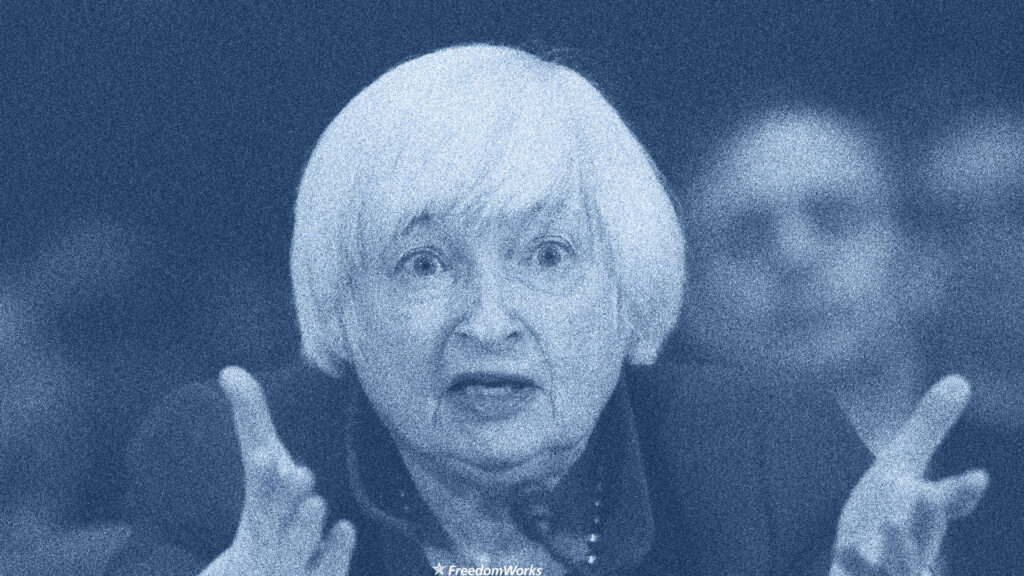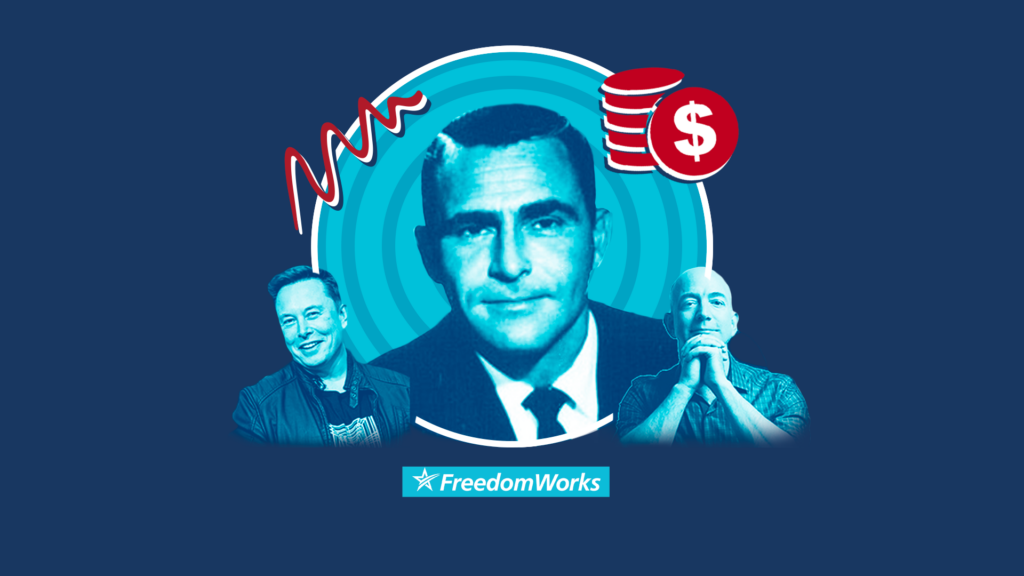His World Bank Skepticism Is What Makes David Malpass the Ideal Choice to Run It
“Businesses, like people, seldom if ever fail solely because of lack of money. They fail because of a lack of ability, judgment, wisdom, ideas, organization, leadership. When these qualities are present, money is seldom a problem.” – Warren Brookes, The Economy In Mind
“I care deeply about the mission and about breaking out of poverty and achieving growth.” Those are the words of David Malpass, at a news conference during which President Trump nominated him to head the World Bank.
For those who don’t know Malpass, his expressed desire to shrink poverty and expand growth might read as the typical – and invariably empty – platitudes of the newly nominated. That’s not the case with Malpass. His words were anything but empty. He believes deeply in the importance of economic growth, and knows the policies necessary to achieve just that.
While he’s plainly succeeded in the political world as evidenced by his senior service in no fewer than three Republican presidential administrations (Reagan, Bush #41, Trump), Malpass’s passion is policy. He’s been talking the policies of growth for decades, has been speaking about them, writing about them, etc. Malpass is one of the rare true believers, which helps explain why he’s expressed skepticism about the World Bank.
And it’s his expressed skepticism about the Institution that makes him an ideal choice to run it. For so long Republicans have talked the talk of limited government and government harming us in its attempts to help us, but in Malpass’s case it’s not unreasonable to assume that he can see the meaning beyond the rhetoric. Malpass knows that government money all too often subsidizes impoverishing stasis, all the while muzzling the natural human desire to grow.
In Malpass’s case, he intimately understands that the path out of poverty on the way to growth is economic freedom. He knows that in countries where the penalty placed on work (taxation) isn’t suffocating, that people are more likely to produce. He knows that regulation is frequently an ineffective tax on production that limits the ability of the enterprising to create. He knows that investment is the driver of growth, but that corrupted, unstable currencies frequently act as a barrier to the latter for them wiping out returns on intrepid investment. As for trade, despite a rather disappointing and all-too-political embrace of some of the anti-China, protectionist leanings of the Administration he presently serves, Malpass deep down knows that individuals trade, not countries, and that individuals always benefit when talented people the world over are competing to serve their needs. Malpass knows that the more individuals can divide up labor with the rest of the world, the more that they can specialize, and by extension thrive.
Malpass’s extensive knowledge of what works arguably explains his skepticism about the World Bank’s mission. He knows well (as will soon become apparent) that in countries where the policies of growth are broadly in place, there’s no need for World Bank loans.
Indeed, it can’t be stressed enough that what’s true for a company is true for a country. If a company is well run, it never needs to ask government for a loan. The act of doing so is an admission of bankruptcy, and an explicit admission that market disciplined doors were repeatedly slammed on the errant corporation. Countries are no different.
If a country requires government support, or a World Bank loan, it’s a sign that the country’s citizens aren’t economically free. If they were, as in if they were free to prosper, private sources of credit would line up to fund all manner of private sector and governmental activities. Looked at in terms of the United States, and without defending government spending for even a second, there’s a reason the U.S. Treasury doesn’t require World Bank finance: investors around the world line up to buy Treasury debt simply because it’s backed by some of the freest and most productive people on earth.
Malpass plainly gets this as evidenced by his proper skepticism about World Bank lending to China: “Well, China has plenty of resources,” is how Malpass put it in 2017 at the Council on Foreign Relations, when asked to explain his desire to cease World Bank lending to the happily growing country. Yes, China has resources because its people are increasingly free to produce in awe-inspiring ways.
Which speaks to the obvious problem with World Bank loans. They correlate with poverty’s perpetuation. That they do is a statement of the obvious. Economically free countries led by broadly reasonable politicians don’t need World Bank financing. That they don’t is a simple reminder about the countries that do line up for World Bank funds: it’s a safe bet that most aren’t operating in ways that appeal to market-disciplined investors. Is it any wonder then, that World Bank finance has long correlated with poverty’s continuation? The finance subsidizes what’s not working, and often what’s being overseen by the thoroughly corrupt, while private finance generally finances what’s actually working.
Malpass is necessary for the World Bank because it’s necessary for the countries that vie for the money under its control to be told there’s a better way. Along these lines, what a refreshing change it will be to read about a World Bank head extolling the virtues of light taxation and regulation, quality money, and the freedom to trade. Rest assured that countries willing to embrace the basics of prosperity will soon enough not need the World Bank. If so, as in if Malpass can convince countries that true prosperity will result much more from freedom than from World Bank funds, what a happy story for him to tell.
It should be Malpass’s goal to tell many stories of countries freeing themselves from the lack of progress that correlates with World Bank largess. Malpass is not like the others, and because he isn’t he should be held to an entirely different standard whereby his tenure is judged by the number of countries that put the World Bank in the rearview mirror on his watch. Many will if Malpass energetically communicates his message of prosperity to governments and people that desperately need it. Malpass gets it.
In short, Malpass should run the World Bank while imagining that he’s critiquing it. If so, he’ll be less likely to veer off course into mission creep that will surely suffocate true human progress. David Malpass will succeed if the bank he’s been nominated to lead lends less precisely because client countries listen to him more.




